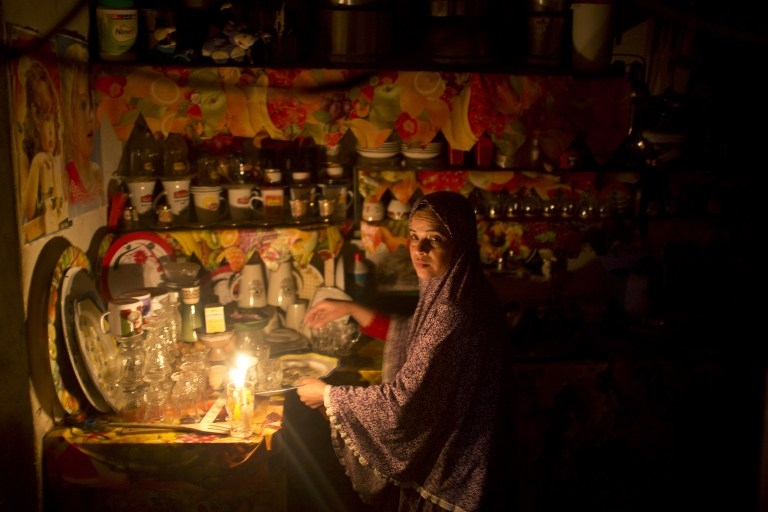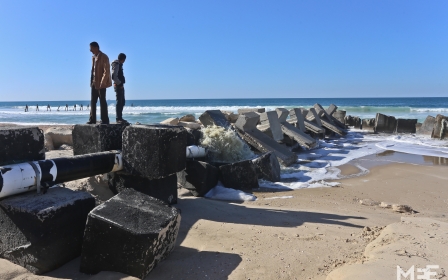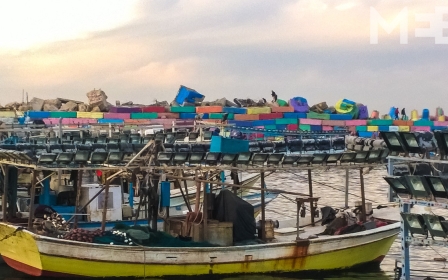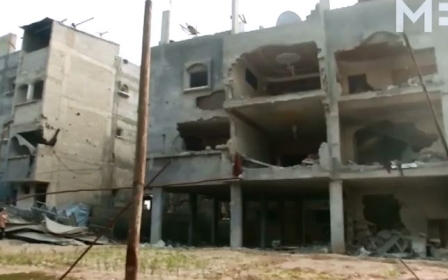Gaza power plant shuts down over Palestinian tax dispute

The Gaza Strip's sole power plant has halted production, the Hamas-run energy authority said Thursday, following a dispute with the West Bank-based Palestinian Authority over fuel tax.
Hamas pays the PA for fuel imported to besieged Gaza, but is short of cash and had been unable to cover the additional costs in tax.
In December, Qatar stepped in and donated $10 million (nine million euros) to the PA to cover the tax, effectively exempting Hamas from paying it.
But that money has dried up, and the PA is insisting Hamas begin paying the tax again, says Hamas.
"The power plant stopped producing electricity during the night, after funds from Qatari donations to cover fuel costs ran out," the Hamas-run Gaza energy authority said.
"We are unable to pay for the fuel because of the taxes on purchasing it."
Gaza is blockaded and controlled by Israel on two of its crossings, and isolated by Egyptian closure of a third.
Israel facilitates the entry of fuel supplies.
A crisis-hit Hamas is unable to pay its own government and security employees due to the blockade and Egypt's closure of the border, with financial restraints hurting the group.
The plant requires 550,000 litres (145,000 gallons) of fuel per day to produce at capacity, the energy authority says.
Even with the plant running, Gaza suffers 12 hours of power outages each day, and that is expected to increase to 18 hours after the plant's shutdown.
Many individual homes have their own generators, and households can purchase, expensively, fuel that comes into Gaza for private consumption.
Hamas and the Palestine Liberation Organisation, which dominates the PA, signed a unity deal in April that was to see the West Bank-based government take over administration and security of the Gaza Strip.
But pending various disputes, including over the payment of Hamas's security forces, the deal has yet to be implemented, and Hamas remains in control of Gaza.
The two sides agreed on a government of independents in June, but progress on reconciliation to fix a years-old split was further delayed by Hamas's war with Israel in July and August.
New MEE newsletter: Jerusalem Dispatch
Sign up to get the latest insights and analysis on Israel-Palestine, alongside Turkey Unpacked and other MEE newsletters
Middle East Eye delivers independent and unrivalled coverage and analysis of the Middle East, North Africa and beyond. To learn more about republishing this content and the associated fees, please fill out this form. More about MEE can be found here.




